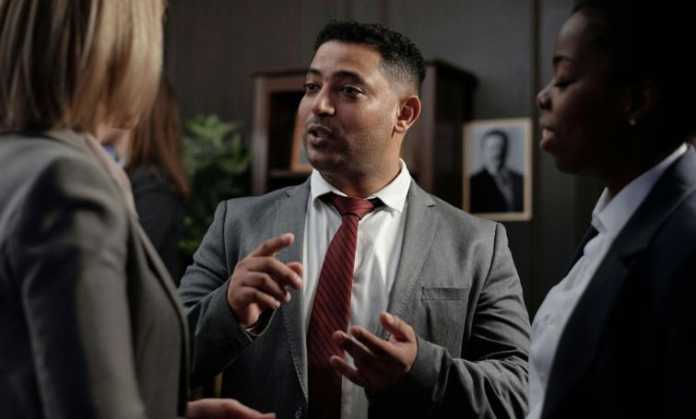Charlotte tax attorneys provide individuals and business owners with assistance for various tax-related issues. Understanding that every case is individual, these professionals develop solutions tailored specifically to the client’s requirements.
They have assisted numerous clients with settling debts and avoiding levies or seizures of assets, as well as helping reduce income tax consequences of selling a closely-held company.
Offer in Compromise
An Offer in Compromise allows the IRS to negotiate the settlement of tax debt with less money than you owe. They consider various factors when making their determination – your income, assets, expenses and future earnings; collection efforts might require unreasonable payments that exceed what can be afforded or could lead to unfair treatment – for them to make this determination.
An experienced Charlotte tax attorney can assist in understanding the advantages and disadvantages of an Offer in Compromise from the Internal Revenue Service (IRS). You can learn more about tax codes by clicking the link. By agreeing to settle with them directly instead of filing bankruptcy or waiting until an unpaid tax lien expires, settlement often saves thousands in fees.
Bad news is that getting an Offer in Compromise can be complicated. First, you must meet basic eligibility requirements.
To determine your eligibility, fill out an online pre-qualifier questionnaire or submit Form 656-B directly to the IRS; this form details which tax years and tax types you wish to compromise, along with offer amount and payment terms; you will also need supporting documents like collection information statements for wage earners/self-employed taxpayers as well as financial statements for businesses.
Alternatively, if the IRS rejects your offer, you can appeal their decision. To do this successfully, however, it’s vital that all necessary forms and documentation be submitted on time – an experienced tax attorney can help make sure this happens successfully for you.
Successful appeals can save both time and money, as well as prevent harsher penalties like tax liens from being placed against your property. If you’re having trouble paying your taxes, contact a local tax attorney as soon as possible for advice regarding potential relief strategies.
Tax Liens
Tax liens are legal claims filed by the Internal Revenue Service against an individual or business who fails to pay their taxes on time. Once registered with them, tax liens can attach any property that the debtor owns or acquires and prevent them from getting credit, selling their home or vehicle, refinancing, etc. It’s important not to ignore tax liens; contact a Charlotte tax attorney immediately if facing one!
An Offer in Compromise program from Charlotte can assist with settling debts for less than you owe, while for business owners the legal team can assist in reaching an agreement with the IRS to avoid costly tax audits.
The IRS offers several programs designed to assist those having trouble paying their taxes, including its Fresh Start program that helps individuals establish payment plans to help make it easier to meet payment obligations – helping you avoid harsh penalties such as tax liens.
A qualified attorney can assist in selecting an appropriate program as well as provide insights into other opportunities you might not know exist.
Filing for bankruptcy may provide relief for those struggling with tax debt, though not necessarily all taxes owed. Discuss this option with your attorney as soon as possible so they can determine whether Chapter 7 eligibility exists in your case.
Tax lawyers can also appeal the decisions of IRS collection officials, or advocate on your behalf for you to be declared “Currently Not Collectible”, whereby they recognize you don’t currently have the resources available to pay your debt at this time, thus helping avoid lien, levee or seizure placement on property.
A Charlotte tax attorney might even negotiate for reduced settlement payments if it can be demonstrated that paying will cause financial hardship for themselves or their client. You can click the link: https://www.pon.harvard.edu/daily/batna/10-hardball-tactics-in-negotiation/ to learn more about negotiation.
Bankruptcy
If you have unpaid taxes that you are having difficulty paying off, consulting with an experienced tax attorney is crucial. They can assist in negotiating an offer in compromise with the IRS as a settlement option or help with an IRS audit or filing state taxes returns – Charlotte tax lawyers offer prompt resolution that avoid costly penalties.
Filing for bankruptcy may help relieve some types of tax debt, but it should be understood that doing so has serious repercussions for both your credit score and ability to borrow in the future. Furthermore, filing can leave you without assets such as your home and car.
Though bankruptcy allows individuals to discharge certain tax debt, working with an experienced attorney to determine the most suitable options is essential. A number of criteria must be fulfilled for your tax debt to be discharged.
If the IRS holds a tax lien on property that prevents you from selling or refinancing it, this can be an enormous source of stress and headache. A lawyer can negotiate with the IRS on your behalf in order to remove this lien, making selling or refinancing easier for homeowners and business owners alike.
Audits
Audits may seem intimidating, but they’re just part of doing business in today’s environment. Audits are part of the IRS’ examination of your business or individual financial records in order to ensure compliance with tax laws as well as ensure they’re accurate and reliable. If chosen for audit, an attorney can help work directly with the Department of Revenue on resolving any queries or concerns that arise without incurring a tax bill in return.
If you disagree with a decision made during an audit, you have sixty days from receiving notice of assessment to appeal and have access to legal representation that can guide this process and negotiate settlement options that make paying your assessed tax bills easier for you.
These lawyers offer more than just filing returns; they also specialize in complex matters, including settling unfiled back taxes and resolving lien and wage garnishment issues, determining eligibility for tax forgiveness programs and more.































